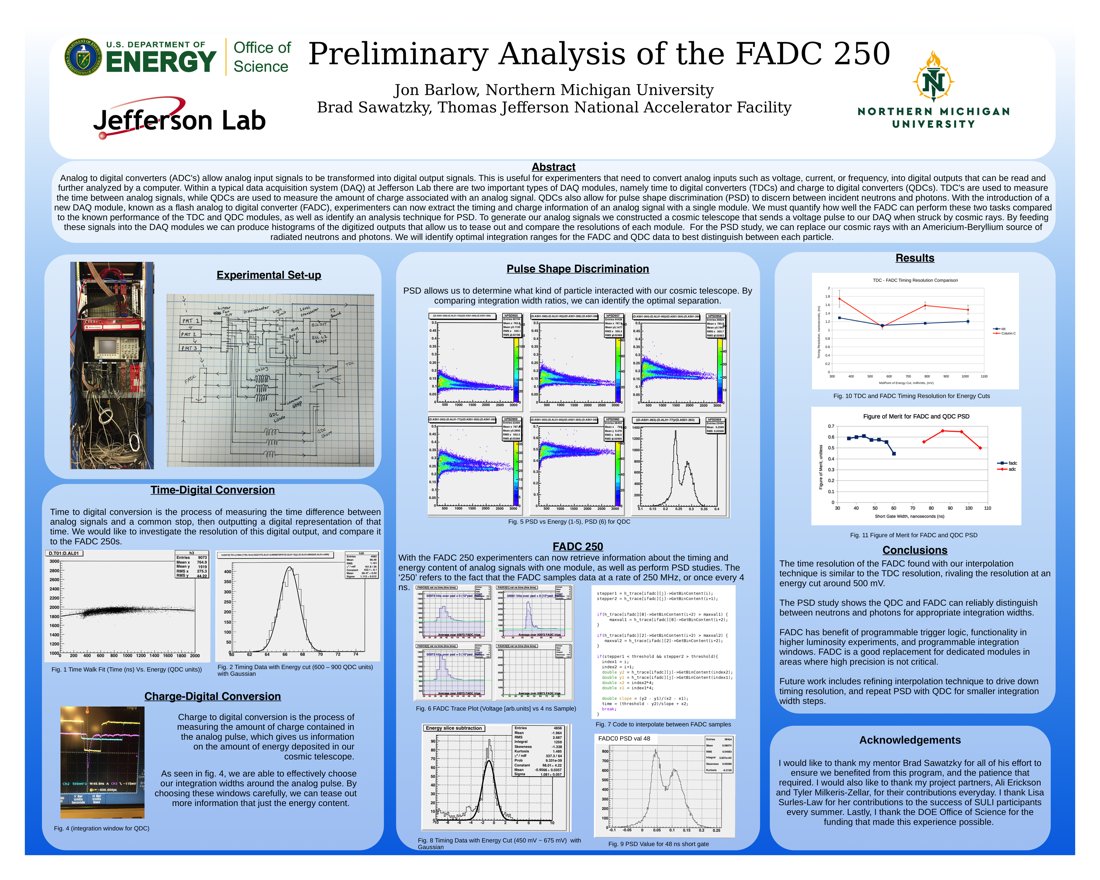Undergraduate Research at Jefferson Lab
Analysis of the FADC 250
Student: Jonathan Barlow
School: Northern Michigan University
Mentored By: Brad Sawatzky
Analog to digital converters (ADC's) allow analog input signals to be transformed into digital output signals. This is useful for experimenters that need to convert analog inputs such as voltage, current, or frequency, into digital outputs that can be read and further analyzed by a computer. Within a typical data acquisition system (DAQ) at Jefferson Lab there are two important types of DAQ modules, namely time to digital converters (TDC's) and charge to digital converters (QDC's). TDC's are used to measure the time between analog signals, while QDC's are used to measure the amount of charge associated with an analog signal. QDC's also allow for pulse shape discrimination (PSD) to discern between incident neutrons and photons. With the introduction of a new DAQ module, known as a flash analog to digital converter (FADC), experimenters can now extract the timing and charge information of an analog signal with a single module. We must quantify how well the FADC can extract timing information and perform PSD, compared to the known performance of the TDC and QDC modules. To generate our analog signals we constructed a cosmic telescope that sends a voltage pulse to our DAQ when struck by cosmic rays. We can produce histograms of the digitized outputs that allow us to tease out and compare the resolutions of each module. For the PSD study, we can replace our cosmic rays with an Americium-Beryllium source of radiated neutrons and photons. Comparing the structure of the signals produced by these particles is indicative of their identity. Through these studies we have shown that the FADC is a cutting edge DAQ component that can replace the function of two legacy modules reliably.

Citation and linking information
For questions about this page, please contact Education Web Administrator.
